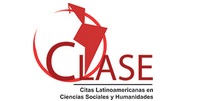El método fenomenológico en la investigación educativa: entendiendo los principios clave de la metodología de Max van Manen
DOI:
https://doi.org/10.32870/dse.v0i29.1423Resumo
La fenomenología hace referencia a un movimiento filosófico y a diversas perspectivas de investigación cualitativa. La propuesta del pedagogo Max van Manen es una propuesta de investigación fenomenológica con características propias y que resulta difícil de aprehender para los investigadores cualitativos que recién se interesan en ella. El presente texto tiene por objetivo describir los principios y los supuestos metodológicos de la fenomenología hermenéutica, también llamada fenomenología de la práctica, que no han sido difundidos de manera explícita en la literatura, lo cual dificulta la comprensión de este método. El artículo se divide en dos secciones principales, en la primera sección se describe el principio teleológico, el principio ontológico y el principio epistemológico. En la segunda sección se describen los supuestos metodológicos que incluyen la metodología al servicio de la práctica profesional, transitar de la actitud natural a la actitud fenomenológica, investigar la experiencia tal como es vivida, la experiencia vivida no puede conocerse a través de código ni categorías y el texto fenomenológico promueve el conocimiento pático. Se concluye que la fenomenología de la práctica es una metodología cualitativa fenomenológica no canónica, que investiga el fenómeno educativo tal como es vivido (principio ontológico), que promueve la adquisición de una sabiduría práctica (principio epistemológico) y que permite velar por el bienestar de los estudiantes (principio teleológico).Downloads
Referências
Ayala, R. (2008). La metodología fenomenológico-hermenéutica de M. Van Manen en el campo de la investigación educativa. Posibilidades y primeras experiencias. Revista de Investigación Educativa, 26(2), 409-430. https://revistas.um.es/rie/article/view/94001
Ayala, R. (2017). Retorno a lo esencial. Fenomenología hermenéutica aplicada desde el enfoque de Max van Manen. España: Caligrama.
Ayala, R. (2018). La relación pedagógica: En las fuentes de la experiencia educativa con van Manen. Revista Complutense de Educación, 29(1), 27-41. https://doi.org/10.5209/RCED.51925
Biesta, G. (2016). Devolver la enseñanza a la educación. Una respuesta a la desaparición del maestro. Pedagogía y Saberes, (44), 119-129. https://revistas.pedagogica.edu.co/index.php/PYS/article/view/4069/3497
Burch, M. (2021). Make Applied Phenomenology what It Needs to Be: An Interdisciplinary Research Program. Continental Philosophy Review, 54(2), 275-293. https://doi.org/10.1007/s11007-021-09532-1
Castillo-Sanguino, N.; G. Montes-Sosa (2018). La experiencia vivida de ser estudiante de bachillerato de nuevo ingreso. Sinéctica, Revista Electrónica de Educación, 51. https://doi.org/10.31391/S2007-7033(2018)0051-002
Castillo-Sanguino, N. (2019). La experiencia vivida del coestar en el bachillerato: existir como solicitud. Opción, 35(89-2), 1074-1104. https://produccioncientificaluz.org/index.php/opcion/article/view/27519
Culbertson, C. (2018). Walker Percy, Phenomenology, and the Mistery of Language. En Marsh, L. (ed.). Walker Percy, Philosopher. London: Palgrave Macmillan, 41-61. https://doi.org/10.1007/978-3-319-77968-3
Dawson, K.; A. Beattie (2018). Locating the Educator in Outdoor Early Childhood Education. Australian Journal of Environmental Education, 34(2), 127-142. https://doi.org/10.1017/aee.2018.24
Dowling, M.; A. Cooney (2012). Research Approaches Related to Phenomenology: Negotiating a Complex Landscape. Nurse Researcher, (20), 21-27. http://hdl.handle.net/10379/14708
Enrich, L. (2005). Revisiting Phenomenology: Its Potential for Management Research. British Academy of Management Conference, 1-13.
Finlay, L. (2013). Unfolding the Phenomenological Research Process: Iterative Stages of “Seeing Afresh.” Journal of Humanistic Psychology, 53(2), 172-201. https://doi.org/10.1177/0022167812453877
Fuster, D. (2019). Investigación cualitativa: Método fenomenológico hermenéutico. Propósitos y Representaciones, 7(1), 201. https://doi.org/10.20511/pyr2019.v7n1.267
Giorgi, A. (2015). The Phenomenological Psychology of J.H. van den Berg. Journal of Phenomenological Psychology, 46(2), 141-162. https://doi.org/10.1163/15691624-12341292
Giorgi, A. (2017). A Response to the Attempted Critique of the Scientific Phenomenological Method. Journal of Phenomenological Psychology, (48), 83-144.
Giorgi, A. (2021). Classic Writings for a Phenomenology of Practice, edited by Max van Manen and Michael van Manen. Journal of Phenomenological Psychology, 52(2), 294-300. https://doi.org/10.1163/15691624-12341394
Goble, E. (2021). The Challenges of Reseaching Lived Experience in Education. En Creely, E.; J. Southcott; K. Carabott; D. Lyons (eds.). Phenomenological Inquiry in Education. Theories, Practices, Provocations and Directions. New York: Routledge.
Gorichanaz, T. (2019). Questioning and Understanding in the Library: A Philosophy of Technology Perspective. Education for Information, (35), 1-39.
Griffero, T. (2020). Pathicity: Experiencing the World in an Atmospheric Way. Open Philosophy, 2(1), 414-427.https://doi.org/10.1515/opphil-2019-0031
Heinonen, K. (2015). Van Manen’s Method and Reduction in a Phenomenological Hermeneutic Study. Nurse Researcher, 22(4), 35-41. https://doi.org/10.7748/nr.22.4.35.e1326
Henderikus, S.; R. van Hezewijk (2012). Phenomenological Psychology in The Netherlands. In Encyclopedia of the History of Psychological Theories. US: Springer Link, 789-795. https://doi.org/10.1007/978-1-4419-0463-8
Howard, P.; T. Saevi; A. Foran; G. Biesta (2021). Phenomenology and Educational Theory in Conversation: Back to Education Itself. New York: Routledge.
Hyde, B. (2018). Pathic Knowing, Lived Sensibility and Phenomenological Reflections on Children’s Spirituality. International Journal of Children’s Spirituality, 23(4), 346-357. https://doi.org/10.1080/1364436X.2018.1526168
Kair?, S. (2021). Max van Manen’s Phenomenology of Practice: Relation with Education Sciences and Philosophy. Problemos, (99), 118-130. https://doi.org/10.15388/Problemos.99.9
Kockelmans, J. (1987). Phenomenological Psychology: The Dutch School. Martinus Nijhoff Publishers. https://doi.org/10.1007/978-3-030-24348-7_508
Køster, A.; A. Fernandez (2021). Investigating Modes of Being in the World: An Introduction to Phenomenologically Grounded Qualitative Research. Phenomenology and the Cognitive Sciences. https://doi.org/10.1007/s11097-020-09723-w
Larsen, H.; P. Adu (2022). The Theoretical Framework in Phenomenological Research: Development and Application. Routledge.
Levering, B.; M. van Manen (2002). Phenomenological Anthropology in the Neetherlands and flanders. Phenomenology World-Wide, 274-286.
Magrini, J. (2012). College of DuPage Phenomenology for Educators: Max van Manen and “Human Science” Research. http://dc.cod.edu/philosophypub/32
Magrini, J. (2015). New Approaches to Curriculum as Phenomenological Text. US: Palgrave Macmillan. https://doi.org/10.1057/9781137573186
Mapp, T. (2008). Understanding Phenomenology: the Lived Experience. British Journal of Midwifery, 16(5), 308-311.
Paley, J. (2017). Phenomenology as Qualitative Research: A Critical Analysis of Meaning Attribution. Routledge.
Paley, J. (2018a). Meaning, Lived Experience, Empathy and Boredom: Max van Manen on Phenomenology and Heidegger. Nursing Philosophy, 19(3), 1-9. https://doi.org/10.1111/nup.12211
Paley, J. (2018b). Phenomenology and Qualitative Research: Amedeo Giorgi’s Hermetic Epistemology. Nursing Philosophy, 19(3), 1-9. https://doi.org/10.1111/nup.12212
Peoples, K. (2021). How to Write a Phenomenological Dissertation: A Step by Step Guide. SAGE.
Percy, W. (2018). The Message in the Bottle and Lost in the Cosmos. Open Road.
Roth, W. (2012). Mathematical Learning, the Unseen and the Unforeseen. For the Learning of Mathematics, 32(3), 15-21.
Sabegui, H.; L. Afshar; S. Yazdani (2022). Phenomenology of Practice: A Valuable Way to Gain Pathic Knowledge in Medical Education. Journal of Qualitative Research in Health Sciences, 11(1), 58-60.
Schratz, M.; T. Westfall-Greiter (2015). Learning as Experience: A Continental European Perspective on the Nature of Learning. The Nature of Learning: Using Research to Inspire Practice, January, 14-33.
Seamon, D. (2019). Whither Phenomenology? Thirty Years of Environmental and Architectural Phenomenology. Environmental and Architectural Phenomenology, 30(2), 37-48.
Smith, J. (2018). “Yes It Is Phenomenological”: A Reply to Max Van Manen’s Critique of Interpretative Phenomenological Analysis. Qualitative Health Research, 28(12), 1955-1958. https://doi.org/10.1177/1049732318799577
Thomson, I. (2001). Heidegger on Ontological Education, or: How We Become what We Are. Inquiry, (44), 243-268.
Vagle, M. (2018). Crafting Phenomenological Research (2nd ed.). Routledge.
Van den Berg, J. (2021). The Conversation. En van Manen, M.; M. van Manen (eds.). Classic Writings for a Phenomenology of Practice. Routledge, 31-46.
Van Manen, M. (1982). Phenomenological Pedagogy* Pedagogical Theorizing. Curriculum Inquiry, 12(3), 283-299. http://about.jstor.org/terms
Van Manen, M. (1996). Phenomenological Pedagogy and the Question of Meaning. Phenomenology and Educationa Discourse. Heinemann Higuer and Further Education, 39-64.
Van Manen, M.; S. Li (2002). The Pathic Principle of Pedagogical Language. Teaching and Teacher Education, (18), 215-224.
Van Manen, M. (2003). Investigación educativa y experiencia vivida. Idea books, S. A.
Van Manen, M. (2007). Phenomenology of Practice. Phenomenology & Practice, 1(1), 11-30.
Van Manen, M. (2014). Phenomenology of Practice?: Meaning-Giving Methods in Phenomenological Research and Writing. Left Coast Press.
Van Manen, M. (2016). Pedagogical Tact. Knowing What to do when You Don’t Know what to do. Routledge.
Van Manen, M.; I. Higgins; P. van der Riet (2016). A Conversation with Max van Manen on Phenomenology in its Original Sense. Nursing and Health Sciences, 18(1), 4-7. https://doi.org/10.1111/nhs.12274
Van Manen, M. (2017a). But Is It Phenomenology? Qualitative Health Research, 27(6), 775-779. https://doi.org/10.1177/1049732317699570
Van Manen, M. (2017b). Phenomenology and Meaning Attribution. Indo-Pacific Journal of Phenomenology, 17(1), 1-12. https://doi.org/10.1111/j.1558-5646.2008.00557.x
Van Manen, M. (2018). Rebuttal Rejoinder: Present IPA For What It Is—Interpretative Psychological Analysis. Qualitative Health Research, 28(12), 1959-1968. https://doi.org/10.1177/1049732318795474
Van Manen, M. (2019). Rebuttal: Doing Phenomenology on the Things. Qualitative Health Research, 1-8. https://doi.org/10.1177/1049732319827293
Van Manen, M. (2020). Uniqueness and Novelty in Phenomenological Inquiry. Qualitative Inquiry, 26(5), 486-490. https://doi.org/10.1177/1077800419829788
Van Manen, M.; M. van Manen (eds.). (2021a). Classic Writings for a Phenomenology of Practice. Routledge.
Van Manen, M.; M. van Manen (2021b). Doing Phenomenological Research and Writing. Qualitative Health Research, 31(6), 1069-1082. https://doi.org/10.1177/10497323211003058
Williams, H. (2021). The Meaning of “Phenomenology”: Qualitative and Philosophical Phenomenological Research Methods. The Qualitative Report, 26(2), 366-385. https://doi.org/10.46743/2160-3715/2021.4587
Zahavi, D. (2018). Getting it Quite Wrong: van Manen and Smith on Phenomenology. Qualitative Health Research, 1-8. https://doi.org/10.1177/1049732318817547
Zahavi, D. (2019a). The Practice of Phenomenology: The Case of Max van Manen. Nursing Philosophy, 21(2). https://doi.org/10.1111/nup.12276
Zahavi, D. (2019b). Applied Phenomenology: Why it is Safe to Ignore the Epoché. Continental Philosophy Review, 54(2), 259-273. https://doi.org/10.1007/s11007-019-09463-y
Downloads
Publicado
Edição
Seção
Licença
Esta obra está bajo una licencia internacional Creative Commons Atribución-NoComercial 4.0.
Una vez que los manuscritos son aceptados por los evaluadores para ser publicados, los autores deberán de suscribir una carta de cesión de derechos en favor de la Universidad de Guadalajara para la edición, publicación y difusión de su obra. Ya que sea notificada la publicación de su manuscrito, el editor de la revista le enviará un correo electrónico con el formato de la carta de cesión de derechos.















